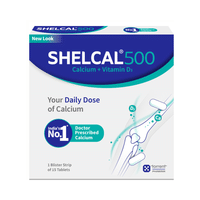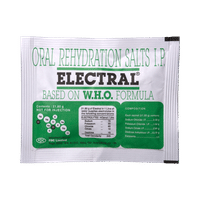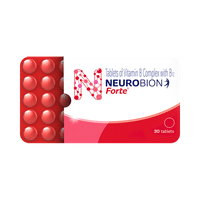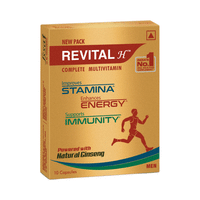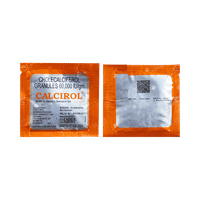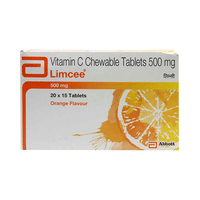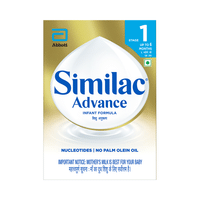Allercalcin Tablet

food interaction for Allercalcin
alcohol interaction for Allercalcin
pregnancy interaction for Allercalcin
lactation interaction for Allercalcin
food
alcohol
pregnancy
lactation
Allercalcin Tablet may be taken with or without food, but it is better to take it at a fixed time.
Take it with food if stomach upset occurs.
None
Take it with food if stomach upset occurs.
None
CAUTION
Caution is advised when consuming alcohol with Allercalcin Tablet. Please consult your doctor.
CAUTION
Allercalcin Tablet may be unsafe to use during pregnancy. Although there are limited studies in humans, animal studies have shown harmful effects on the developing baby. Your doctor will weigh the benefits and any potential risks before prescribing it to you. Please consult your doctor.
CONSULT YOUR DOCTOR
Allercalcin Tablet is probably safe to use during breastfeeding. Limited human data suggests that the drug does not represent any significant risk to the baby.
Larger doses or prolonged use of Allercalcin Tablet may cause sleepiness and other effects in the baby
Larger doses or prolonged use of Allercalcin Tablet may cause sleepiness and other effects in the baby
SAFE IF PRESCRIBED
SALT INFORMATION FOR Allercalcin
Calcium Gluconate(500mg)
Uses
Calcium Gluconate is used in the treatment of calcium deficiency.
How it works
Calcium Gluconate provides essential nutrients
Common side effects
Local soft tissue inflammation, Tissue necrosis, Calcinosis cutis, Calcification due to extravasation, Vasodilation, Decreased blood pressure, Slow heart rate, Arrhythmia (irregular heartbeats), Aluminum intoxication, Fainting, Cardiac arrest
Chlorpheniramine Maleate(4mg)
Uses
Chlorpheniramine Maleate is used in the treatment of allergic conditions.
How it works
Chlorpheniramine Maleate is an antiallergic medication. When your body is exposed to an allergen (pollen, animal dander, house dust etc.), it produces a chemical called histamine. This causes watery eyes, runny or blocked nose, sneezing, skin rashes, itching etc. Chlorpheniramine Maleate works by blocking the action of histamine, thereby relieving these symptoms.
Common side effects
Dryness in mouth, Sleepiness, Nausea, Headache, Sedation, Difficulty in paying attention, Impaired coordination, Dizziness, Blurred vision, Fatigue
Vitamin C(50mg)
Uses
Vitamin C is used in the treatment of nutritional deficiencies.
How it works
Vitamin C is a vitamin that provides essential nutrients.
Common side effects
No common side effects seen
SUBSTITUTES FOR Allercalcin
1 Substitutes
1 Substitutes
Sorted By
 Rs. 38save 23% more per Tablet
Rs. 38save 23% more per Tablet
Frequently asked questions FOR Allercalcin
Calcium Gluconate
Q. Is Calcium Gluconate good for health?
When your body has a calcium deficiency, it fulfills that need by using the calcium present in your bones, thereby weakening them. Calcium Gluconate prevents this weakening of bones by supplementing your body with the amount of calcium it needs to keep the bones strong and prevent any bone disorders.
Q. When should you not use Calcium Gluconate?
This medicine should not be given if you already have high calcium levels in your blood. Your doctor will advise you to get a blood test done before starting your treatment with Calcium Gluconate.
Q. Can excess calcium be harmful?
If you take calcium supplements and eat calcium-rich/fortified foods, you may be getting more calcium than you realize. Excess calcium can cause bloating, constipation, a chalky taste in your mouth, and an increased risk of kidney stones, prostate cancer, and heart disease.
Chlorpheniramine Maleate
Q. Does chlorpheniramine or chlorpheniramine maleate cause increase in blood pressure/ drowsy/non drowsy/sedating/get you high/keep you awake/sleepiness/make you tired/weight gain?
Chlorpheniramine causing these side effects is common or rare. Always consult your doctor, if you experience any of these side effects
Q. Is chlorpheniramine like Benadryl?
No, chlorpheniramine is different from Benadryl
Q. Is chlorpheniramine prescription?
Yes, it is available with doctor’s prescription only
Vitamin C
Q. What is Vitamin C?
Vitamin C consists of a water-soluble vitamin known as vitamin C. Vitamin C is also known as L-ascorbic acid or ascorbate. It cannot be stored for long in our body as it is water soluble. Therefore, it should be taken from food like tomatoes and citrus fruits like oranges to maintain sufficient levels of vitamin C in the body.
Q. Is Vitamin C necessary?
Vitamin C is used if your diet does not provide enough vitamin C. It can also be used to treat certain conditions caused due to low levels of vitamin C in the body. However, it would be best to consult your doctor before taking Vitamin C to get maximum benefit.
Q. Why is it important to take vitamin C in your diet?
Vitamin C has many beneficial properties. Vitamin C helps in the growth and repair of tissues of bones, cartilage, tendons, skin, hair, muscles and many more. Along with that, it helps in wound healing and also enhances absorption of iron in our body. Excess of free radicals can speed up the ageing process, vitamin C due to its rich antioxidant properties help to reduce the harmful effects of these free radicals. Vitamin C is very crucial for bone and teeth health. It improves vision and also regulates the blood cholesterol levels. Owing to its numerous benefits, it is very important to take an adequate amount of vitamin C in your diet.













